- Home
- Wilkie Collins
The Frozen Deep Page 3
The Frozen Deep Read online
Page 3
Frank took Clara’s hand. Long afterwards—in the dark Arctic days, in the dreary Arctic nights—he remembered how coldly and how passively that hand lay in his.
‘Courage, Clara!’ he said gaily. ‘A sailor’s sweetheart must accustom herself to partings. The time will soon pass. Good-bye, my darling! Good-bye, my wife!’
He kissed the cold hand; he looked his last—for many a long year perhaps!—at the pale and beautiful face. How she loves me! he thought. How the parting distresses her! He still held her hand; he would have lingered longer, if Mrs Crayford had not wisely waived all ceremony and pushed him away.
The two ladies followed him at a safe distance through the crowd, and saw him step into the boat. The oars struck the water; Frank waved his cap to Clara. In a moment more a vessel at anchor hid the boat from view. They had seen the last of him on his way to the Frozen Deep!
‘No Richard Wardour in the boat,’ said Mrs Crayford. ‘No Richard Wardour on the shore. Let this be a lesson to you, my dear. Never be foolish enough to believe in presentiments again.’
Clara’s eyes still wandered suspiciously to and fro among the crowd.
‘Are you not satisfied yet?’ asked Mrs Crayford.
‘No,’ Clara answered. ‘I am not satisfied yet.’
‘What! still looking for him? This is really too absurd. Here is my husband Coming. I shall tell him to call a cab and send you home.’
Clara drew back a few steps.
‘I won’t be in the way, Lucy, while you are taking leave of your good husband,’ she said. ‘I will wait here.’
‘Wait here! What for?’
‘For something which I may yet see. Or for something which I may still hear.’
‘Richard
Wardour?’
‘Richard
Wardour.’
Mrs Crayford turned to her husband without another word. Clara’s infatuation was beyond the reach of remonstrance.
The boats of the Wanderer took the place at the landing-stage vacated by the boats of the Sea-Mew. A burst of cheering among the outer ranks of the crowd announced the arrival of the commander of the expedition on the scene. Captain Helding appeared,
looking right and left for his first lieutenant. Finding Crayford with his wife, the captain made his apologies for interfering with his best grace.
‘Give him up to his professional duties for one minute, Mrs Crayford, and you shall have him back again for half an hour. The Arctic Expedition is to blame, my dear lady—
not the captain—for parting man and wife. In Crayford’s place I should have left it to the bachelors to find the North-West Passage, and have stopped at home with you.’
Excusing himself in those bluntly complimentary terms, Captain Helding drew the lieutenant aside a few steps, accidentally taking a direction that led the two officers close to the place at which Clara was standing. Both the captain and. the lieutenant were too completely absorbed in their professional duties to notice her. Neither the one nor the other had the faintest suspicion that she could, and did, hear every word of the talk that passed between them.
‘You received my note this morning?’ the captain began.
‘Certainly, Captain Helding, or I should have been on board the ship before this.’
‘I am going on board myself at once,’ the captain proceeded. ‘But I must ask you to keep your boat waiting for half an hour more. You will be all the longer with your wife, you know. I thought of that, Crayford.’
‘I
am much
obliged
to you, Captain Helding. I suppose there is some other reason for
inverting the Customary order of things, and keeping the lieutenant on shore after the captain is on board?’
‘Quite true; there is another reason. I want you to wait for a volunteer who has just joined us.’
‘A
volunteer!’
‘Yes; he has his outfit to get in a hurry, and he may be half an hour late.’
‘It’s rather a sudden appointment, isn’t it?’
‘No doubt. Very sudden.’
‘And, pardon me, it’s rather a long time (as we are situated) to keep the ships waiting for one man?’
‘Quite true, again. But a man who is worth having is worth waiting for. This man is worth having; this man is worth his weight in gold to such an expedition as ours.
Seasoned to all climates and all fatigues, a strong fellow, a brave fellow, a clever fellow—in short, an excellent officer. I know him well, or I should never have taken him.
The country gets plenty of work out of my flew volunteer, Crayford. He only returned yesterday from foreign service.
‘He only returned yesterday from foreign service, and he volunteers this morning to join the Arctic expedition! You astonish me.’
‘I dare say I do; you can’t be more astonished than I was when he presented himself at my hotel and told me what he wanted. “Why, my good fellow, you have just got home,” I said; “are you weary of your freedom after only a few hours’ experience of it?” His answer rather startled me. He said, “I am weary of my life, sir; I have come home and found a trouble to welcome me which goes near to break my heart. If I don’t take refuge in absence and hard work, I am a lost man. Will you give me refuge?” That’s what he said, Crayford, word for word.’
‘Did you ask him to explain himself further?’
‘Not I; I knew his value, and I took the poor devil on the spot without pestering him with any more questions. No need to ask him to explain himself; the facts speak for
themselves in these cases. The old story, my good friend. There’s a woman at the bottom of it, of course.’
Mrs Crayford, waiting for the return of her husband as patiently as she could, was startled by feeling a hand suddenly laid on her shoulder. She looked round and confronted Clara. Her first feeling of surprise changed instantly to alarm. Clara was trembling from head to foot.
‘What is the matter? What has frightened you, my dear?’
‘Lucy! I have heard of him!’
‘Richard Wardour again?’
‘Remember what I told you. I have heard every word of the conversation between Captain Helding and your husband. A man came to the Captain this morning and volunteered to join the Wanderer. The Captain has taken him. The man is Richard Wardour.’
‘You don’t mean it! Are you sure? Did you hear Captain Helding mention his name?’
‘No.’
‘Then how do you know it’s Richard Wardour?’
‘Don’t ask me! I am as certain of it as that I am standing here! They are going away together, Lucy—away to the eternal ice and snow. My foreboding has come true! The two will meet—the man who is to marry me, and the man whose heart I have broken!’
‘Your foreboding has not come true, Clara! The men have not met here—the men are not likely to meet elsewhere. They are appointed to separate ships. Frank belongs to the Sea-Mew, and Wardour to the Wanderer. See! Captain Helding has done. My husband is coming this way. Let me make sure. Let me speak to him.’
Lieutenant Crayford returned to his wife. She spoke to him instantly.
‘William, you have got a new volunteer who joins the Wanderer?’
‘What! you have been listening to the Captain and me?’
‘I want to know his name.
‘How in the world did you manage to hear what we said to each other?’
‘His name? has the Captain given you his name?’
‘Don’t excite yourself, my dear. Look! you are positively alarming Miss Burnham. The new volunteer is a perfect stranger to us. There is his name—last on the ship’s list.’
Mrs Crawford snatched the list out of her husband’s hand, and read the name:
‘Richard
Wardour.’
SECOND SCENE
THE HUT OF THE SEA-MEW
VI
Good-bye to England! Good-bye to inhabited and civilised regions of the earth!
Two years ha
ve passed since the voyagers sailed from their native shores. The enterprise has failed—the Arctic Expedition is lost and ice-locked in the Polar wastes.
The good ships Wanderer and Sea-Mew, entombed in ice, will never ride the buoyant waters more. Stripped of their lighter timbers, both vessels have been used for the construction of huts, erected on the nearest land.
The largest of the two buildings which now shelter the lost men is occupied by the surviving officers and crew of the Sea-Mew. On one side of the principal room are the sleeping-berths and the fireplace. The other side discloses a broad doorway (closed by a canvas screen), which serves as a means of communication with an inner apartment, devoted to the superior officers. A hammock is slung to the rough raftered roof of the main room as an extra bed. A man, completely hidden by his bedclothes, is sleeping in the hammock. By the fireside there is a second man—supposed to be on the watch—fast asleep, poor wretch! at the present moment. Behind the sleeper stands an old cask, which serves for a table. The objects at present on the table are a pestle and mortar, and a saucepan full of the dry bones of animals. In plain words, the dinner for the day. By way of ornament to the dull brown walls, icicles appear in the crevices of the timber, gleaming at intervals in the red firelight. No wind whistles outside the lonely dwelling—no cry of bird or beast is heard. Indoors and out of doors the awful silence of the Polar desert reigns, for the moment, undisturbed.
VII
The first sound that broke the silence came from the inner apartment. An officer lifted the canvas screen in the hut of the Sea-Mew and entered the main room. Cold and privation had sadly thinned the ranks. The commander of the ship—Captain Ebsworth—was dangerously ill. The first lieutenant was dead. An officer of the Wanderer filled their places for the time, with Captain Helding’s permission. The officer so employed was—
Lieutenant Crayford.
He approached the man at the fireside and awakened him.
‘Jump up, Bateson! It’s your turn to be relieved.’
The relief appeared, rising from a heap of old sails at the back of the hut. Bateson vanished, yawning, to his bed. Lieutenant Crayford walked backwards and forwards briskly, trying what exercise would do towards warming his blood.
The pestle and mortar on the cask attracted his attention. He stopped and looked up at the man in the hammock.
‘I must rouse the cook,’ he said to himself, with a smile. ‘That fellow little thinks how useful he is in keeping up my spirits. The most inveterate croaker and grumbler in the world—and yet, according to his own account, the only cheerful man in the whole ship’s company. John Want! John Want! Rouse up, there!’
A head rose slowly out of the bedclothes, covered with a red night-cap. A melancholy nose rested itself on the edge of the hammock. A voice, worthy of the nose, expressed its opinion of the Arctic climate in these words:
‘Lord! Lord! here’s all my breath on my blanket. Icicles, if you please, sir, all round my mouth and all over my blanket. Every time I have snored I’ve frozen something. When a man gets the cold into him to that extent that he ices his own bed, it can’t last much longer. Never mind! I don’t grumble.’
Crayford tapped the saucepan of bones impatiently. John Want lowered himself to the floor—grumbling all the way—by a rope attached to the rafters at his bed head. Instead of approaching his superior officer and his saucepan he hobbled, shivering, to the fireplace, and held his chin as close as he possibly could over the fire. Crayford looked after him.
‘Hullo! what are you doing there?’
‘Thawing my beard, sir.
‘Come here directly, and set to work on these bones.’
John Want remained immovably attached to the fireplace, holding something else over the fire. Crayford began to lose his temper.
‘What the devil are you about now?’
‘Thawing my watch, sir. It’s been under my pillow all night, and the cold has stopped it. Cheerful, wholesome, bracing sort of climate to live in, isn’t it, sir? Never mind! I don’t grumble.’
‘No; we all know that. Look here! Are these bones pounded small enough?’ John Want suddenly approached the lieutenant, and looked at him with an appearance of the deepest interest.
‘You’ll excuse me, sir,’ he said; ‘how very hollow your voice sounds this morning.’
‘Never mind my voice. The bones! the bones!’
‘Yes, sir—the bones. They’ll take a trifle more pounding. I’ll do my best with them, sir, for your sake.’
‘What do you mean?’
John Want shook his head, and looked at Crayford with a dreary smile.
‘I don’t think I shall have the honour of making much more bone soup for you, sir. Do you think yourself you’ll last long, sir? I don’t, saving your presence. I think about another week or ten days will do for us all. Never mind. I don’t grumble.’
He poured the bones into the mortar and began to pound them—under protest. At the same moment a sailor appeared, entering from the inner hut.
‘A message from Captain Ebsworth, sir.’
‘Well?’
‘The Captain is worse than ever with his freezing pains, sir. He wants to see you immediately.’
‘I will go at once. Rouse the doctor.’
Answering in those terms, Crayford returned to the inner hut, followed by the sailor.
John Want shook his head again, and smiled more drearily than ever. ‘Rouse the doctor,’
he repeated. ‘Suppose the doctor should be frozen? He hadn’t a ha’porth of warmth in him last night, and his voice sounded like a whisper in a speaking trumpet. Will the bones do now? Yes, the bones will do now. Into the saucepan with you,’ cried John Want, suiting the action to the word, ‘and flavour the hot water if you can! When I remember that I was once an apprentice at a pastrycook’s—when I think of the gallons of turtle-soup that this hand has stirred up in a jolly hot kitchen—and when I find myself mixing bones and hot water for soup, and turning into ice as fast as I can, if I wasn’t of a cheerful disposition I should feel inclined to grumble. John Want! John Want! whatever had you done with your natural senses, when you made up your mind to go to sea?’
A new voice hailed the cook, speaking from one of the bedplaces in the side of the hut.
It was the voice of Francis Aldersley.
‘Who’s that croaking over the fire?’
‘Croaking?’ repeated John Want, with the air of a man who considered himself the object of a gratuitous insult. ‘Croaking? You don’t find your own voice at all altered for the worse—do you, Mr Frank? I don’t give him,’ John proceeded, speaking confidentially to himself, ‘more than six hours to last. He’s one of your grumblers.’
‘What are you doing there?’ asked Frank.
‘I’m making bone soup, sir, and wondering why I ever went to sea.’
‘Well, and why did you go to sea?’
‘I’m not certain, Mr Frank. Sometimes I think it was natural perversity; sometimes I think it was false pride at getting over sea-sickness; sometimes I think it was reading Robinson Crusoe and books warning of me not to go to sea.’
Frank laughed. ‘You’re an odd fellow. What do you mean by false pride at getting over sea-sickness? Did you get over sea-sickness in some new way?’
John Want’s dismal face brightened in spite of himself. Frank had recalled to the cook’s memory one of the noteworthy passages in the cook’s life.
‘That’s it, sir!’ he said. ‘If ever a man cured sea-sickness in a new way yet, I am that man—I got over it, Mr Frank, by dint of hard eating. I was a passenger on board a packet-boat, sir, when first I saw blue water. A nasty lopp of a sea came on at dinner-time, and I began to feel queer the moment the soup was put on the table. “Sick?” says the captain. “Rather, sir,” says I. “Will you try my cure?” says the captain. “Certainly, sir,” says I. “Is your heart in your mouth yet?” says the captain. “Not quite, sir,” says I.
“Mock-turtle soup,” says the captain, and helps m
e. I swallow a couple of spoonfuls, and turn as white as a sheet. The captain cocks his eye at me. “Go on deck, sir,” Says he, “get rid of the soup, and then come back to the cabin.” I got rid of the soup, and then came back to the cabin. “Cod’s head-and-shoulders,” Says the captain, and helps me. “I can’t stand it, sir,” says I. “You must,” Says the captain, “because it’s the cure.” I crammed down a mouthful and turned paler than ever. “Go on deck,” says the captain. “Get rid of the cod’s head, and come back to the cabin.” Off I go, and back I come. “Boiled leg of mutton and trimmings,” says the captain, and helps me. “No fat, sir,” says I. “Fat’s the cure,” says the captain, and makes me eat it. “Lean’s the cure,” says the captain, and makes me eat it. “Steady?” says the captain. “Sick,” says I. “Go on deck,” says the captain, “get rid of the boiled leg of mutton and trimmings, and come back to the cabin.”
Off I go, staggering—back I come, more dead than alive. “Devilled kidneys,” says the captain. I shut my eyes, and got ’em down. “Cure’s beginning,” says the captain. “Mutton chop and pickles.” I shut my eyes and got them down. “Broiled ham and cayenne pepper,” says the captain. “Glass of stout and cranberry tart. Want to go on deck again?”
“No, sir,” says I. “Cure’s done,” says the captain. “Never you give in to your stomach, and your stomach will end in giving in to you.”’
Having stated the moral purpose of his story in those unanswerable words, John Want took himself and his saucepan into the kitchen. A moment later Crayford returned to the hut, and astonished Frank Aldersley by an unexpected question.
‘Have you anything in your berth, Frank, that you set a value on?’
Frank looked puzzled.
‘Nothing that I set the smallest value on—when I am out of it,’ he replied. ‘What does your question mean?’
‘We are almost as short of fuel as we are of provisions,’ Crayford proceeded. ‘Your berth will make good firing. I have directed Bateson to be here in ten minutes with his axe.’

 The Woman in White
The Woman in White The Queen of Hearts
The Queen of Hearts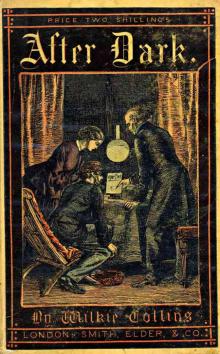 Miss Jeromette and the Clergyman
Miss Jeromette and the Clergyman Man and Wife
Man and Wife The Legacy of Cain
The Legacy of Cain Armadale
Armadale The Frozen Deep
The Frozen Deep John Jago's Ghost or the Dead Alive
John Jago's Ghost or the Dead Alive Poor Miss Finch
Poor Miss Finch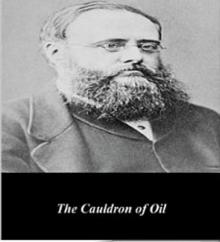 The Cauldron of Oil: A Case Worth Looking At
The Cauldron of Oil: A Case Worth Looking At The Poisoned Meal
The Poisoned Meal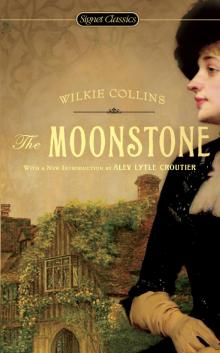 The Moonstone
The Moonstone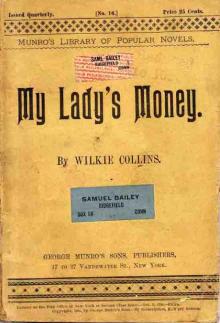 My Lady's Money
My Lady's Money Classic Ghost Stories
Classic Ghost Stories Jezebel's Daughter
Jezebel's Daughter The Devil's Spectacles
The Devil's Spectacles I Say No
I Say No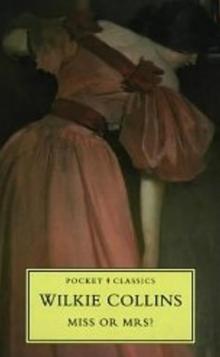 Miss or Mrs.?
Miss or Mrs.?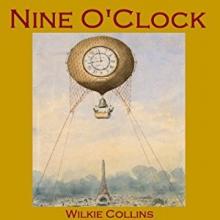 Nine O'Clock
Nine O'Clock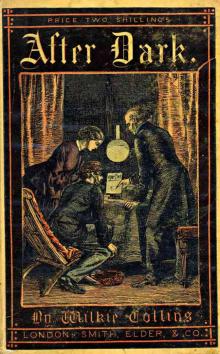 The Lawyer's Story of a Stolen Letter
The Lawyer's Story of a Stolen Letter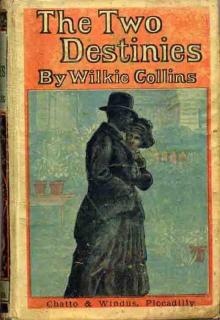 The Two Destinies
The Two Destinies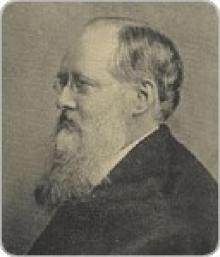 Mr. Percy and the Prophet
Mr. Percy and the Prophet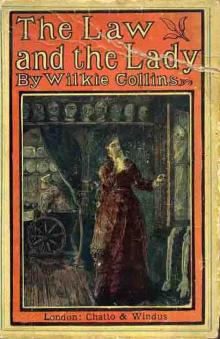 The Law and the Lady
The Law and the Lady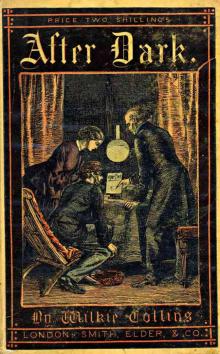 The Nun's Story of Gabriel's Marriage
The Nun's Story of Gabriel's Marriage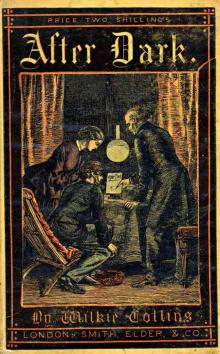 After Dark
After Dark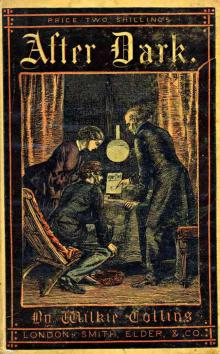 Mr. Captain and the Nymph
Mr. Captain and the Nymph No Name
No Name The Moonstone (Penguin Classics)
The Moonstone (Penguin Classics) Antonina
Antonina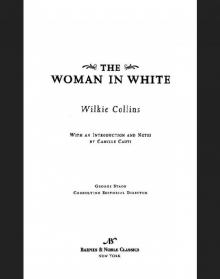 Woman in White (Barnes & Noble Classics Series)
Woman in White (Barnes & Noble Classics Series)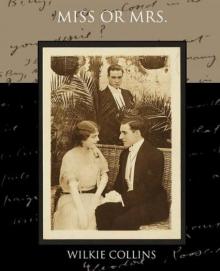 Miss or Mrs
Miss or Mrs The Dead Alive
The Dead Alive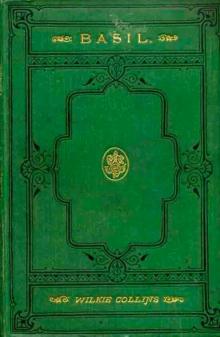 Basil
Basil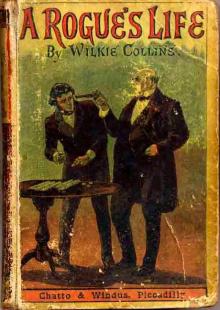 A Rogue's Life
A Rogue's Life The New Magdalen
The New Magdalen Blind Love
Blind Love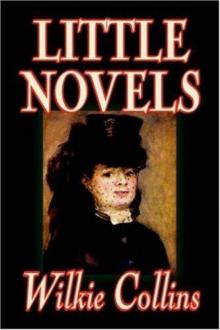 Little Novels
Little Novels The Lazy Tour of Two Idle Apprentices
The Lazy Tour of Two Idle Apprentices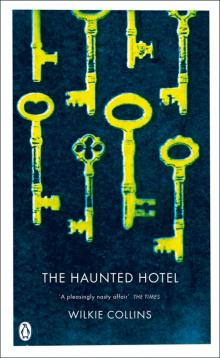 The Haunted Hotel
The Haunted Hotel Hide and Seek
Hide and Seek